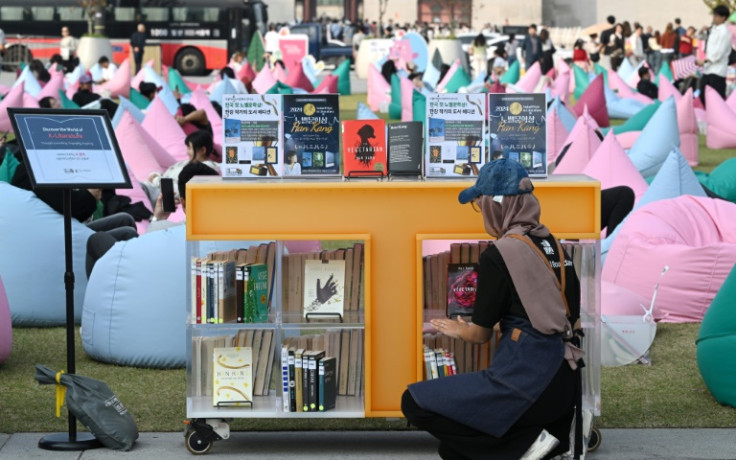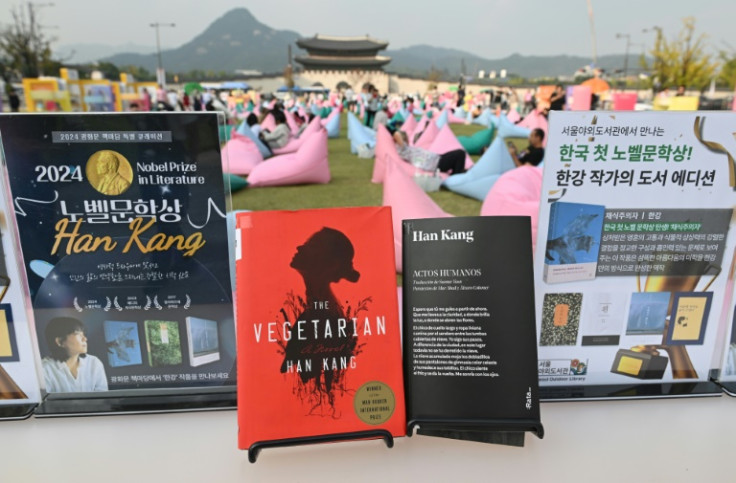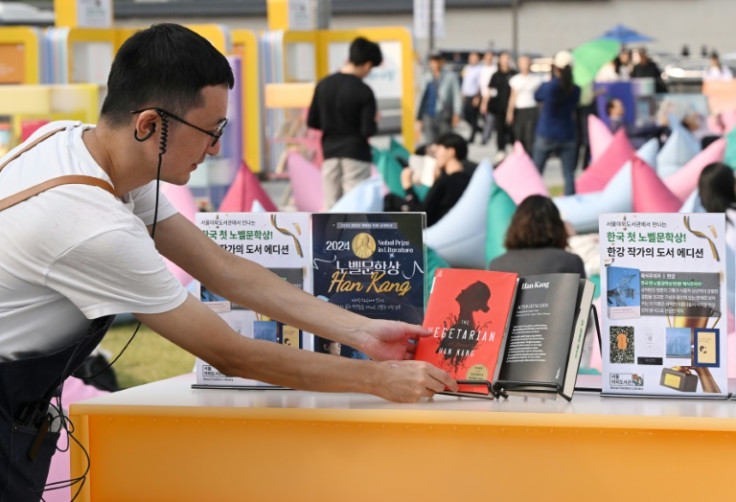
Major South Korean bookstores sold out of author Han Kang's books Friday, as sales skyrocketed and the share price of local publishers soared following her historic Nobel Prize win.
The first Asian woman to win the literary award, short story writer and novelist Han is best known overseas for "The Vegetarian", her first novel to be translated into English, which won the Man Booker Prize in 2016.
The 53-year-old was honoured with the Nobel "for her intense poetic prose that confronts historical traumas and exposes the fragility of human life", the Swedish Academy said.
Shortly after the announcement, which came late Thursday in Seoul, major bookstore websites across the country crashed as people rushed to order her books.
Han's works quickly filled all 10 slots on bookstore chain Kyobo's real-time bestseller list, with the company telling AFP 60,000 copies of Han's books had been sold early Friday, 451 times more than the day before.
"We're obviously thrilled, and it's incredible to see so many people wanting to read books all at once," Kyobo spokesperson Kim Hyun-jung told AFP.
"Since there has never been a Nobel Prize-winning work in the Korean language, I think readers are both excited and somewhat unaccustomed to this very happy situation."
Shares of online book retailers such as YES24 and Millie Seojae skyrocketed Friday, reaching the daily limit of 30 percent, after which trade is suspended.
A YES24 spokesperson told AFP that almost 80,000 copies of Han's three books -- "Human Acts", "The Vegetarian" and "I Do Not Bid Farewell" -- had been sold as of Friday morning.
A sign at the Kyobo Book Centre's store in central Seoul announced that all of Han Kang's Korean-language books had sold out, leaving only a few English editions on the shelves.
Beside it, a large installation celebrating the author's award featured Han's portrait.
Disappointed readers either browsed the English editions or took pictures of the celebratory display.
Han's father Han Seung-won, who is also a novelist, said he initially could not believe the news of his daughter's win.
"A reporter called me to ask for my reaction," he told reporters. "I responded: 'Are you being misled by some fake news?'"
But he was spoke proudly of Han and her works.
"There's nothing to discard in Kang's novels. Each one is a masterpiece."
Han is one of only 18 women to receive the literature Nobel out of 121 laureates.
A 1980 massacre in her native city of Gwangju, when South Korea's then-military government violently repressed a democratic uprising, later inspired her book "Human Acts".
"I'm glad that Han Kang (was recognised for) being a writer who draws on the pain experienced in South Korea," one reader wrote on X.
"She has continued to speak out as a minority -- whether as someone from the margins, a woman, a feminist, or a person born in a region facing discrimination."
Kim Min-ji, a 27-year-old fan, said she ran to the Kyobo Book Centre as soon as she heard Han won the Nobel.
"I told everyone she was going to be a great author, for crying out loud. It was like I won the award really," she told AFP.
"A South Korean winning the Nobel literature prize is just crazy."










